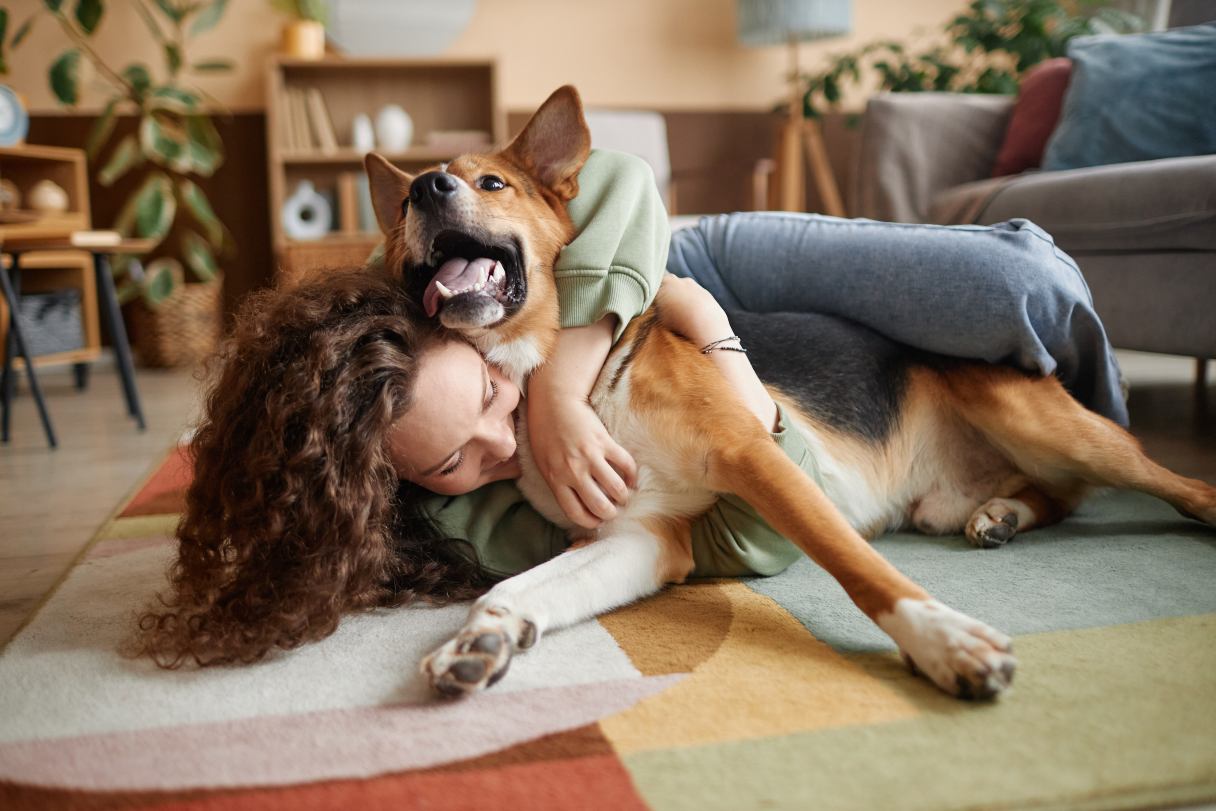Vaccinating your dog is one of the most important steps you can take to protect their health. But, vaccinations are not only about safeguarding against illness — they’re also about ensuring a longer, happier life for your loyal friend.
From preventing serious diseases, such as parvovirus and rabies, to reducing the chance of highly contagious illnesses, vaccinations are essential for dogs of all ages. However, trying to understand which vaccines your dog needs and how you will afford them can be overwhelming.
This article explains why vaccines are so crucial, outlines typical costs and explores financing options so you can make the best choices for your four-legged family member’s well-being.
How Often Do Dogs Need Vaccinations?
Vaccinating your dog at the right intervals is essential for lifelong protection from harmful diseases. According to the World Small Animal Veterinary Association (WSAVA) guidelines, dogs need vaccines at different stages to ensure long-lasting immunity.1
Here’s a quick breakdown of vaccination recommendations based on your dog’s life stage:1
- Puppies (6 to 16 weeks). Puppies should receive vaccines every three to four weeks, typically starting at 6 to 8 weeks of age and continuing until they are 16 weeks of age. This frequent schedule ensures their developing immune system can effectively build strong protection.
- Booster (one year later). Vaccine boosters are recommended one year after the puppy series. This booster helps reinforce immunity as the pet transitions out of the puppy stage.
- Adult dog (every one to three years). After the one-year booster, vaccines should be administered every one to three years to maintain immunity throughout adulthood, although this frequency depends on regional disease prevalence and individual health factors.
Core vs. Non-Core Dog Vaccines
Vaccines for dogs are divided into two main categories: core and non-core.
- Core vaccines. These are the must-have vaccines that protect against serious, widespread diseases that put every dog at potential risk, regardless of their lifestyle or location. Core vaccinations include protection against rabies, canine distemper, canine parvovirus, canine adenovirus and leptospirosis, which are not only highly contagious but also can be life-threatening. Therefore, vaccinating all dogs against these pathogens is critical to their health and the health of other pets and people in their environment.
- Non-core vaccines. These vaccines are recommended based on your dog’s specific lifestyle, environment and contributing factors. For example, dogs who frequently play at dog parks, go hiking or live in tick-prone areas may benefit from the non-core vaccine for Lyme disease. Dogs in social environments or boarding facilities may need the Bordetella vaccine to help prevent kennel cough, and pups in certain regions may need vaccination against canine influenza. Your veterinarian will help you determine the non-core vaccines necessary for your dog’s unique lifestyle to provide tailored protection without over-vaccinating.
Cost of Dog and Puppy Vaccines
The national average cost* of dog vaccines can vary between $15 and $75, depending on the type of vaccine and geographic location.2
Average cost of core vaccines
Here's a look at the average cost* of common core vaccines for dogs:2
| Core vaccine type | Average cost |
|---|---|
| DHPP (5-in-1 vaccine to protect against canine distemper, canine hepatitis, canine parvovirus, canine parainfluenza and canine adenovirus) | $45 |
| Leptospirosis | $25 |
| Rabies | $30 |
Average cost of non-core vaccines
The table below shows the average cost* of common non-core vaccines for dogs:3
| Non-core vaccine type | Average cost |
|---|---|
| Bordetella | $36 |
| Canine influenza | $502 |
| Lyme | $35 |
| Parainfluenza | $36 |
Where Should I Get My Dog Vaccinated?
Several reliable vaccination options are available to ensure your dog receives safe, effective protection. Most pet owners choose their local veterinary clinic, where veterinarians can provide vaccinations as part of a comprehensive examination. Veterinary clinics are equipped to handle vaccines safely and to monitor your dog for any potential reactions, such as hives, facial swelling or difficulty breathing.
For more budget-friendly options, some animal shelters, pet stores or community centers host low-cost vaccine clinics, where trained veterinary professionals administer vaccines in a safe, controlled environment.
While you may be tempted to buy vaccines and administer them at home, pet owners are not advised to vaccinate their dogs. Vaccines must be handled, stored and administered under specific conditions to be effective, and improper administration can lead to ineffective protection or adverse reactions.4
Veterinarians are trained to recognize and respond to any vaccination issues that may arise, which will keep your dog safe. In addition, some vaccines, such as rabies, are required by law to be administered by a licensed veterinarian to ensure accurate records and compliance with local laws. For your dog's safety, always rely on a veterinary professional to handle vaccinations.
Can I Use Pet Insurance to Cover My Dog’s Vaccinations?
Pet insurance can cover your dog’s vaccinations if you choose a plan with wellness or preventive care options. Standard pet insurance policies generally don’t include routine vaccinations, but many providers offer wellness add-ons specifically to cover preventive care, including vaccines.
Be sure to read the fine print when reviewing a pet insurance policy so you fully understand which types of treatment and care are covered. Certain plans may require a waiting period before coverage kicks in, and others may exclude specific vaccines or treatments based on your pet’s age, breed, or pre-existing conditions.
Comparing plans and understanding the full scope of coverage can help you make a more informed decision about your pet’s care.
How Can I Finance and Pay for My Dog’s Vaccinations?
Financing your dog’s vaccines can make preventive care more manageable and ensure your pup stays protected without straining your budget. Some veterinary clinics offer flexible payment options or installment plans, so always ask your vet’s office about available payment plans.
The CareCredit credit card* can be used for veterinary services, including vaccinations. Note that most veterinary clinics expect payment at the time of service.
Keep Your Pup Healthy With Regular Vaccines
Keeping your dog’s vaccines up to date is an investment in their health and longevity. Staying current on recommended vaccines helps support your dog’s overall well-being. Prioritize your dog’s vaccine schedule and consult with your veterinarian to ensure they have the protection they need at every stage of life.
CareCredit Credit Card Financing for Dogs
Taking good care of your pet's well-being from nose to tail is essential. Make sure to stay up to date on their regular checkups at the vet to help keep your pet happy and healthy for a lifetime of love. You can use your CareCredit credit card for pet care throughout the year for routine veterinary services as well as emergencies and surgeries.** Use our Acceptance Locator to find a veterinarian near you that accepts CareCredit.
CareCredit is there for you and your pet every step of the way; continue your wellness journey by downloading the CareCredit Mobile App to manage your account, find a provider on the go and easily access the Well U blog for more great articles, podcasts and videos.
In addition to pet care, you can also use your CareCredit credit card for dentistry, cosmetic, vision, hearing, health systems, dermatology, pharmacy purchases, spa treatments and so much more within the CareCredit network. How will you invest in your health and wellness next?
Author Bio
Jenny Alonge, D.V.M., has 17 years of experience as a veterinarian specializing in equine medicine and surgery. She blends her clinical background and writing expertise to produce veterinary content that is engaging and informative.







